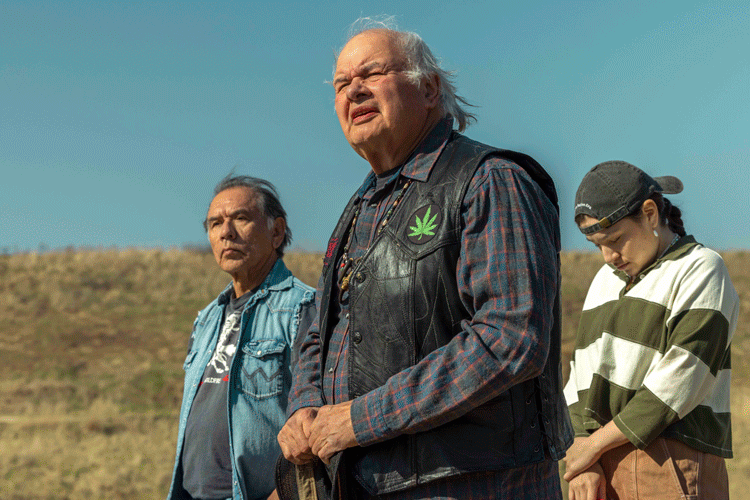SHOW OF WEEK Mar 31
- Share via
“A.D.,” Sunday through Thursday nights on NBC (4) (36) (39) (Illustrated on cover)--No one will ever accuse Vincenzo Labella of shrinking from epic topics.
Labella, a former Roman history professor at the University of Florence, has written, directed or produced TV dramas about Moses, two Popes and Michelangelo. He produced “Jesus of Nazareth” for NBC in 1977 and the 10-hour Emmy-winning “Marco Polo” for the same network in 1981.
And on his drawing board are a miniseries about the Judeo-Christian “tradition of love” and films about Martin Luther and the Chinese emperor who built the Great Wall.
Labella’s career reminds you of the Great Wall.
And now comes “A.D.,” his 12-hour NBC miniseries that picks up where the exquisitely made “Jesus of Nazareth” leaves off, re-creating the turbulent aftermath of the death of Christ and presenting a myriad of characters ranging from gladiators to early Rome’s rotten emperors.
It arrives on the wave of a lavish NBC promotion campaign that included mailing TV critics indexed loose-leaf notebooks filled with “A.D.”-related photographs, historical and biographical material.
Set in the years AD 30-69 and unfolding through the eyes of individual Jews, Romans and Christians, the story records the transformations of history that have helped shape the world.
“A.D.” starts with a three-hour segment Sunday from 8 to 11 p.m. and continues 9-11 p.m. Monday through Wednesday, concluding with a three-hour episode 8-11 p.m. Thursday.
The international cast includes Anthony Andrews, Colleen Dewhurst, Ava Gardner, David Hedison, John Houseman, Richard Kiley, James Mason, Ian McShane, Jennifer O’Neill, Fernando Rey, Richard Roundtree, Susan Sarandon, Ben Vereen, Jack Warden and Anthony Zerbe.
“A.D.” was filmed over a period of nine months in Tunisia. It was directed by Stuart Cooper and co-written by Labella and Anthony Burgess and based on the New Testament and such historical sources as the Roman historian Suetonius and the Jewish historian Josephus.
More to Read
The complete guide to home viewing
Get Screen Gab for everything about the TV shows and streaming movies everyone’s talking about.
You may occasionally receive promotional content from the Los Angeles Times.






